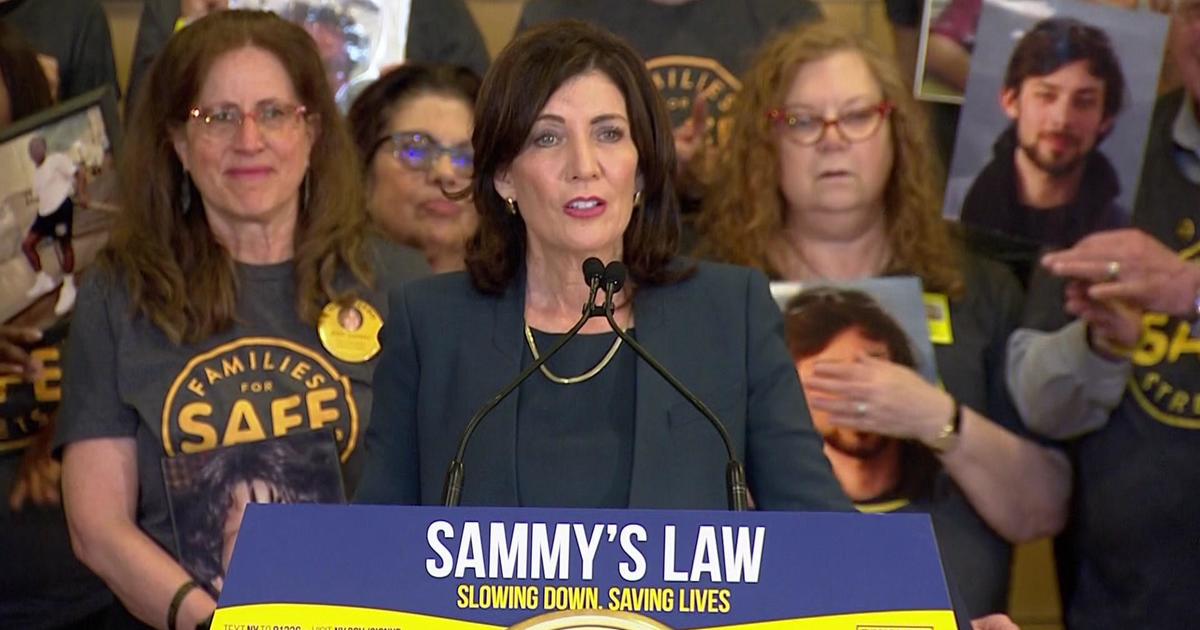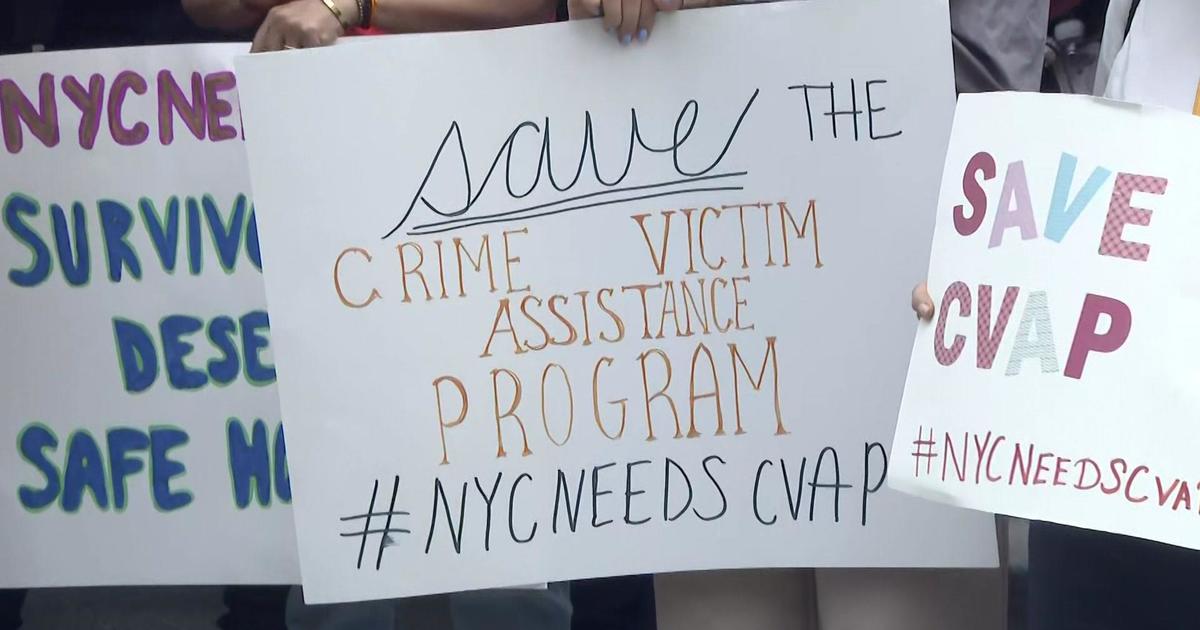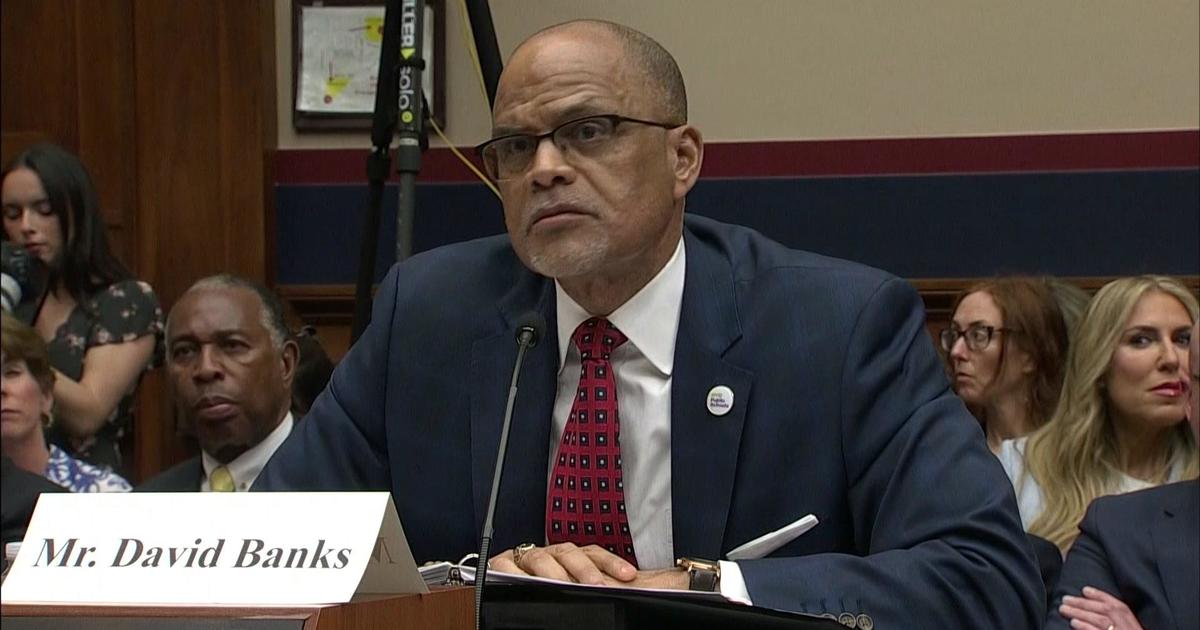Report Says New York Is Facing Shortage Of Spots For Preschool Special Education Classes
NEW YORK (CBSNewYork) -- A new report finds many pre-schoolers who need special education are forced to spend months out of school because New York City does not have enough classes to immediately accommodate them.
Jocelyn David-Burch noticed her son, David, wasn't hitting milestones when he was 2 years old. Soon after, he was diagnosed with autism and almost immediately received early intervention services.
"He went from all these services -- 20 hours a week of intensive service, occupational therapy, speech therapy, all these different therapies to help him -- to go to nothing," David-Burch said.
At 3 years old, David aged out of the program.
Pre-school was supposed to be next, but David-Burch was told there were literally no special education seats available for nine months.
"I didn't know if I was just angry. I was depressed, defeated," she told CBS2's Aundrea Cline-Thomas.
According to a new report by Advocates for Children of New York, the city is expected to have a shortfall of between 1,028 to nearly 2,000 seats for preschool special education classes in the spring when the demand is the highest, especially in the Bronx.
"Children have a legal right to receive the full set of services outlined in their special education plan," said Randi Levine, policy director for Advocates for Children of New York.
That legal right is not being fully met, despite the city adding more than 1,000 seats over the last two years.
As for the state that controls much of the funding, recommendations to add more money to the program by the Board of Regents are not reflected in the governor's budget.
"Now programs are struggling to keep their doors open to run high-quality programs and to recruit and retain preschool special education teachers who are leaving for higher-paid teacher jobs," Levine said.
After seeing the regression in David after his therapy stopped, David-Burch took matters into her own hands, calling all the special education preschool programs in the Bronx.
"Practically begging sometimes, you know. Please, come on, tell me you have a seat," she said.
A rare opening provided David a seat.
"Every moment lost, it can never be regained," David-Burch said.
She wishes educational leaders had the same urgency.
David is doing well and is making great strides.
In the meantime, the city is pointing fingers at the state, saying it needs to allocate more money to provide these necessary services.
The New York State Education Department said in a statement:
NYSED has advocated for greater funding and administrative flexibility in provider's tuition rates in order to ensure reimbursement more accurately reflects the cost of necessary services and programs required for preschool students with disabilities. The Board of Regents have supported increases in funding and rate-setting reforms, expanding resources targeted to promoting teacher recruitment and retention, developing new opportunities for preschool inclusion including a request for $6 million in State aid to pilot enhanced funding for inclusive programs, and the creation of a special education provider data system to better track student needs, program availability, and provider reimbursement. This work and advocacy, including the Regents budget priority request for a tuition rate setting methodology redesign, continues in support of ensuring each preschool student with a disability is provided a free appropriate public education in the least restrictive environment.
NYSED works closely with NYC DOE to address the need for increased capacity to support programs and services for preschool students with disabilities in the city. In order to plan for system capacity changes, NYSED and NYC DOE reviewed multiple data factors to project and anticipate future needs. The need for additional programs and services for Spring 2020 in NYC was recently published at https://infohub.nyced.org/working-with-the-doe/early-childhood/regional-need-for-preschool-special-education and this information will be used to support new program expansions of approved private providers and for NYC DOE strategic planning for its program development.
NYSED is continuing our monitoring efforts to ensure that NYC DOE provides each preschool student with a disability a free appropriate public education in the least restrictive environment. For fall of 2019, NYC DOE created 500 additional classroom seats and NYSED expects that further expansions will occur in response to student need. NYSED is specifically working with the DOE to expand the number of preschool students with disabilities enrolled in NYC 3-K and Pre-K for All programs to ensure preschool special education programs and services are offered in inclusive settings serving both children with and without disabilities.
A spokesperson for the New York City Department of Education said:
We are committed to ensuring there is an appropriate class available for every child who needs one, and in the last two years we have taken major steps to address shortages by opening classes in the districts with greatest need citywide, and adding more than 1,000 seats and approximately 115 teachers. Spring 2020 projections are the highest because seat need increases throughout the year as more children are recommended for special classes, and we are in touch with all families to offer interim special education services and programs while a student is awaiting a seat. We join Advocates for Children in calling on the State to increase the payment rate for preschool special education programs to open new classes and accelerate the program approval process.



